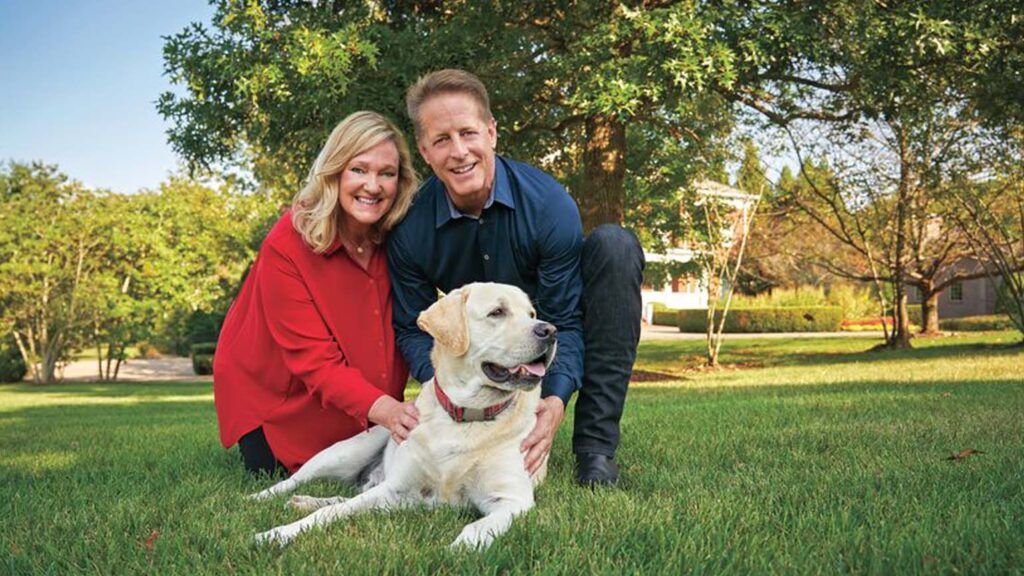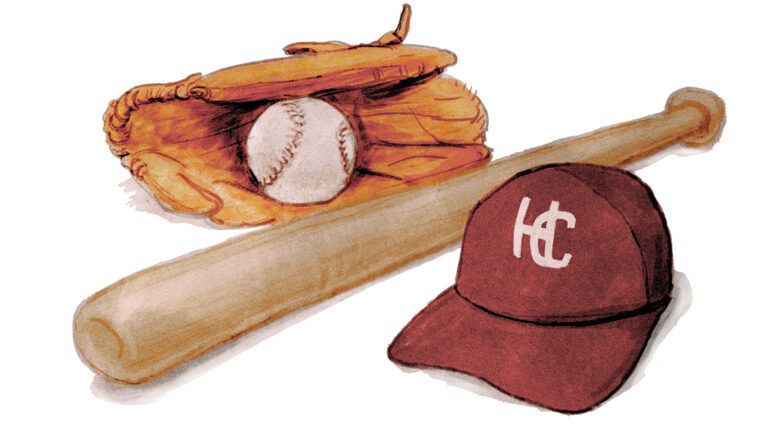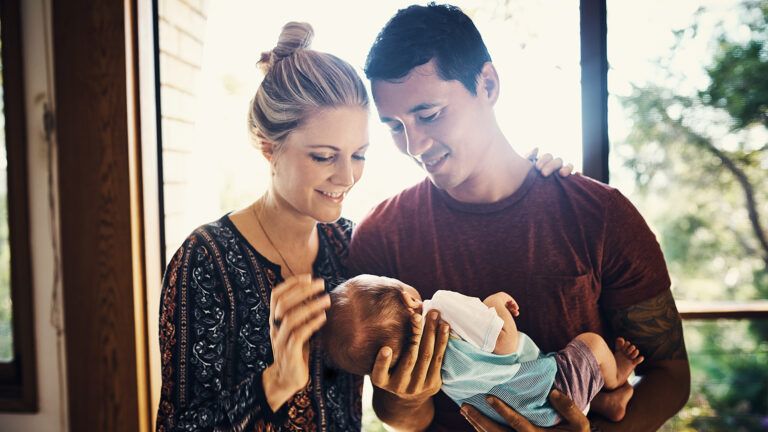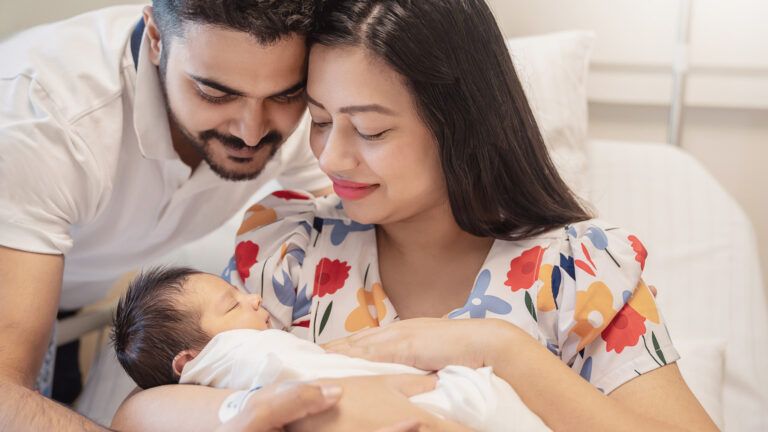In honor of National Adoption month, we offer Christian fiction author Karen Kingsbury’s story of adopting three Haitian boys.
I brushed the bangs from my forehead and clicked “send” on an e-mail, answering a question from a fan about a character in one of my novels.
A child from Haiti. The words popped into my head like an e-mail popping into my inbox. It had been a really long day: working on my new book in the morning, taking care of family and household stuff in the afternoon, then back to my study to answer fan mail in the evening. I tried to dismiss the thought. But it wouldn’t be dismissed.
At that time my husband, Don, and I already had three children, but wanted more. Don had a good job as a high school basketball and football coach. I had published half a dozen novels. By any yardstick we were a blessed family. But when our youngest, Austin, now two, was only three weeks old, he had undergone major surgery to correct an inherited heart defect. He survived, but the ordeal practically killed me.
My doctor said that it was fortunate that neither of our other children had inherited the condition. And Don and I didn’t want to take a risk with our next child. We started talking about adoption—tentatively at first, then just about every day. We met with an adoption facilitator to explore our options.
“There are plenty of kids in America who need good homes,” she told us. “But if you really want to go where the need is greatest, consider Haiti. It’s the poorest country in the Western Hemisphere.”
The facilitator mentioned one orphanage in particular, just outside the Haitian capital of Port-au-Prince. Don and I had agreed to take things slow. The orphanage had a website. But we hadn’t yet looked at it.
Now, with the kids in bed, Don up in our bedroom reading and me down here in my study with my writing done for the day, I couldn’t resist. I typed in the name of the orphanage and clicked. Heart of God’s homepage popped up. “See our list of adoptable kids,” said a banner down at the bottom.
Kelsey, our oldest, was 12. Tyler was seven. Don and I wanted to fill the gap between him and two-year-old Austin. I narrowed my search down and clicked again. A boy’s face appeared on the screen. A boy with big brown eyes and a gentle, tentative smile. I could almost hear God whispering in my ear, Adopt that boy.
“Emmanuel Jean’s grandmother dropped him off a year ago,” said the text. “She believed with all her heart that a loving American family would make him their son.”
I ran up to our bedroom and pulled Don away from his book. He followed me into my study and leaned over the screen.
“Are you sure?” he asked. “There are hundreds…”
“I know, I know,” I said. “It sounds impulsive. Crazy, even. But I just know God wants that boy to be our son.”
Don pointed to another banner that offered a free video.
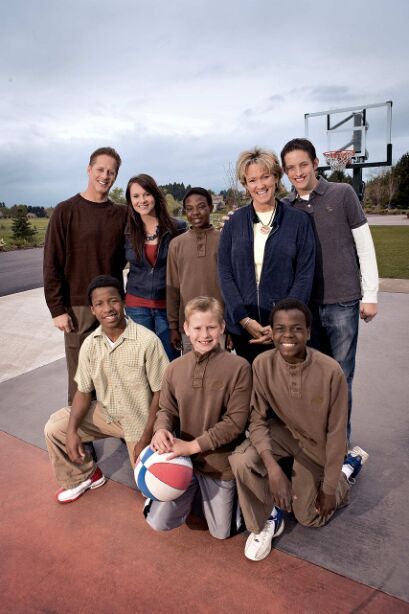
“I guess we’d better get it,” he said.
A package showed up about a week later. We hadn’t brought up the idea of adoption with our kids yet. We waited till they were all tucked into bed before slipping in the video. E. J. appeared. Same big brown eyes. Same sweet smile. And the same unmistakable feeling in my soul: He was meant for us.
The next day Don and I printed out E. J.’s picture, placed it in an empty chair in the living room and called Kelsey, Tyler and Austin in.
“How would you guys feel about having a new brother?” I asked the kids.
“He looks really friendly,” said Kelsey.
“He’s five?” Tyler chimed in. “That’s right between me and Austin!”
Don and I felt so encouraged we took another look at our finances. Why not adopt two children at once and save ourselves the time and expense of doing it again later! We got back on the website and found another boy, a close friend of E. J.’s. Like him he had a warm, sweet smile that tugged at my heart. Sean.
We initiated the adoption process. The first package of forms that came in the mail was thicker than our phone book. With each new form we tackled, the reality of what we were getting into hit Don and me harder.
Lying in bed one night, I felt my confidence—that sureness I’d felt when I first saw E. J.’s face on my screen—faltering. A noisy parade of what-ifs marched through my head. Were we taking on too much? Could we do this? Was the decision to adopt two boys really right?
Our adoption facilitator had made clear that Rule Number One of bringing a new child into a home with other children is to love all of them equally. You have to know that your adopted child is your child, end of story.
I had three children I’d raised from birth—children who were as much a part of me as the blood that flowed in my veins. Who was I kidding to think I could let two total strangers into my house and be able to treat them with that same closeness?
I hugged my pillow. God, can I really be the mother you want me to be? To five children?
Two months after E. J.’s face appeared on my computer screen, I boarded a plane for Port-au-Prince. Don would stay with our kids back in the States.
The orphanage—a low brick building surrounded by a wall topped with razor wire—lay on the outskirts of town. Inside, 42 kids lived in a 1,400-square-foot space. Pigs rooted in garbage just a few feet from the front door. I knocked.
A woman, the head of the orphanage, greeted me. “It’s a special day when a parent comes to adopt a child,” she told me. “All of the children are so excited that you’ve come.”
She led me out to a walled-off patio with a single cement bench. The kids followed after us. She called two boys out of the crowd—both so skinny their shoulders barely kept the necks of their shirts up. I recognized them instantly. Sean and E. J. I leaned down to hug them, when all at once another little boy emerged from the crowd.
“Hi, Mommy,” this one said. Then, in a gesture so familiar it was as though he had known me forever, he brushed the bangs from my forehead.
Who was this child?
The orphanage director explained. The three boys—Sean, E. J. and this third boy, Joshua—were like brothers. For all intents, they were brothers. “Joshua knows you are Sean and E. J.’s mother now,” she said. “That makes you his mother too.”
It made no difference to Joshua that I wasn’t taking him home. In his mind I was his mother nonetheless. How could that be? Trust. A trust beyond all questioning, all judgment, all logic. A trust that could only come from one place. E. J. and Sean were allowed to come with me to the guest quarters. Joshua waited with the other kids to say goodbye. Surely the reality would set in, and I dreaded the thought of hurting his feelings. I waited for his tears to come.
“Goodbye, Sean, goodbye, E. J.,” he said. Then he turned to me. “Goodbye, Mother!” he said without a hint of doubt.
Doubt. It’s something we adults are pretty good at. Sometimes it seems like the longer we live, the better we get at it. But it was a skill six-year-old Joshua had yet to learn.
A little Haitian boy with no education, few prospects and barely enough meat on his bones to keep his clothes on, he nonetheless had room in his heart for faith. Faith that I was his mother.
He simply knew. The same way I knew that night when those words popped into my head about adopting a child from Haiti. Who was I to tell him he was wrong? I called Don that night to report on the day’s events. I worried it would sound more like a plot from one of my novels than a real-life scenario.
“Honey, I don’t know how to say this exactly, but there aren’t two boys here for us, there are three.” I told him the whole story. “I just can’t bear the thought of leaving Joshua behind.”
“Well then don’t,” said Don. “Two, three…bring those boys home.”
Only Sean and E. J. could come back to the States with me on that trip. We had to go through the same complicated legal procedures to adopt Joshua. Six months later he joined our family too.
I won’t say there weren’t any rough patches, because there were. America—with its grocery stores full of food, its hot and cold running water and its completely alien ways, was a huge challenge for all three of the boys. But they had a family to love them every step of the way. And that’s what counted.
Six years later the challenges haven’t gone away. But these days they’re the kind that any normal American family faces. For one thing, we’ve got three kids in their teens now, and I don’t need to tell any parent out there that that brings a whole new world of hurdles.
Sometimes my life does sound like the plot from one of my books. But that’s not so bad, considering whose plot it is.
Watch as Karen Kingsbury talks about her novel “The Bridge,” as well as her prayer practice.
